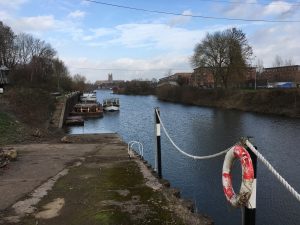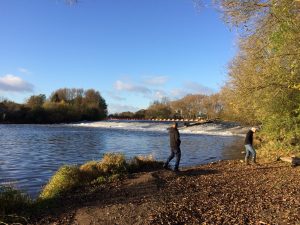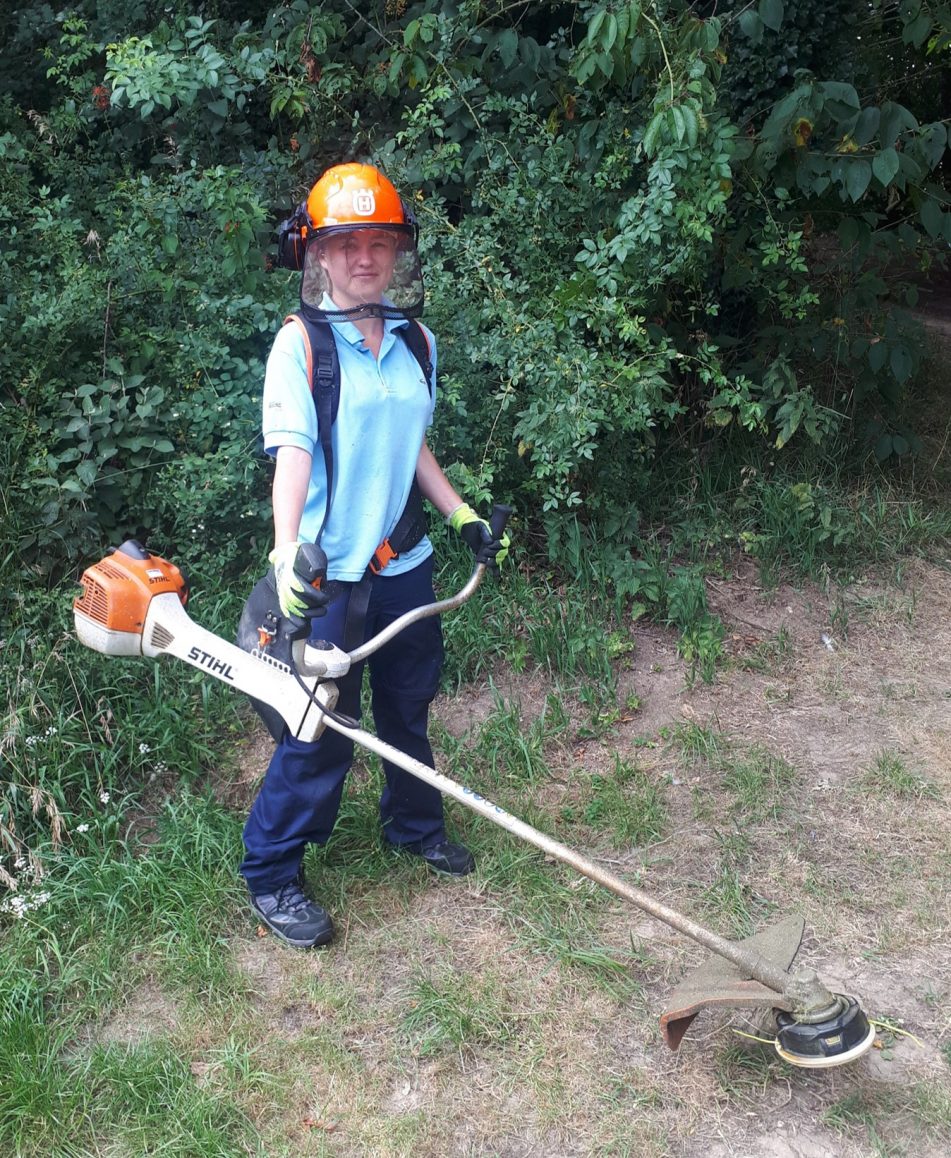
We love the ‘All About’ series, published on the Severn Rivers Trust website. These blogs have been written by Unlocking the Severn volunteers and apprentices, so we figured we’d share them here too! See the original blog on the Severn Rivers website HERE.
Written by Hannah Robinson, a volunteer (and recently, one of our Summer Placement Volunteers!) for Unlocking the Severn and Severn Rivers Trust.
Hard. This is the word I hear the most when I talk to people about this past year.
This pandemic has filled our vocabulary with disheartened expressions, to put it lightly. This is, of course, completely understandable. From being stuck inside, cut off from our friends and family, to losing jobs and loved ones…no one could ever have imagined how much our lives were about to change in the month of March 2020.
Since then everything has been a struggle, and particularly, for many of us, one of the hardest thing has been finding employment. With whole industries shutting down left, right and centre, suddenly there were more people than ever out of a job and more people than ever applying to each role. This meant getting a job in an already extremely competitive industry, like wildlife conservation, felt seemingly impossible and having just graduated from my BSc Wildlife Ecology and Conservation degree at the end of 2019, that was how it felt to me – impossible. Fortunately, I couldn’t have been more wrong, largely thanks to the Severn Rivers Trust…
Volunteering with Unlocking the Severn
My name is Hannah and for 6 weeks I worked remotely with the Severn Rivers Trust on their Unlocking the Severn project as a Fish Migration Monitoring Volunteer. And before you go, ‘well wait that isn’t exactly paid employment…’, let me tell you a little bit about this sector and my experiences in it.
First of all, you have to understand something about the conservation and ecology sector – volunteering is a given. Pandemic or not, in the conservation world you are expected to have practical experience before you can get a job and due to the fact that the sector is, in my opinion, severely underfunded, this experience usually has to be gained through volunteering your time for free.
You might be starting to glean that this is not exactly easy for many people and that it may mean certain groups of people are excluded, but that is a blog for another time. Personally, I had already done a bunch of volunteering with different organisations throughout my degree, whilst also working paid roles. Yes, it was difficult and yes, I would end up falling asleep in random places more than I care to admit…, but my volunteering roles during university gave me some of the most useful and enjoyable experiences I had. Subsequently, I was not adverse to the idea. So, after I graduated, I looked for volunteering roles alongside paid ones hoping it would lead to the beginning of my career…
And then the pandemic hit.
Suddenly, roles that were scarce became seemingly non-existent, all practical volunteering ceased due to social distancing, I even had friends who had managed to land themselves unicorn-like positions which were devastatingly cancelled due to funding disappearing. It was a mess.
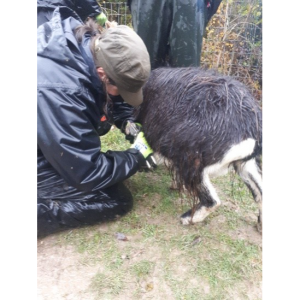
Working with livestock during my traineeship.
But I was lucky. I had a partner who could support me (I had been working in hospitality whilst trying to find conservation roles, so had lost my job), while I now not only looked for a new paid role but continued my search to start my career. For any aspiring conservationists reading this there are two career websites I would advise signing up to now – Environment Job and Countryside Jobs. These will be your lifeline when it comes to nature-related jobs in the U.K., and it is here where I found my first volunteering role during the pandemic – a Country Park Ranger Traineeship. It was a 6 month unpaid placement, I learnt a lot and had a blast, but ultimately it wasn’t for me; partly because it solidified in my mind that I wanted to work with aquatic habitats and partly because me being unable to drive (due to medical reasons) was an unavoidable obstacle.
So, after my Traineeship finished, I was lost. It had been a dead end and although I recognised I had learnt a lot, with the world still in the middle of the pandemic and no opportunities on the horizon, breaking into wildlife conservation felt further away and more impossible than ever. I must admit, it was easy to give into defeatism, to feel sorry for myself and to be paralysed by hopelessness. Kinds of emotions I’m sure so many people felt and are feeling. But inspiration comes from unexpected places. And I definitely didn’t expect it to come from social media (something that can be best avoided when in negative mental states), but it is there where I found the resources to rekindle my drive and passion for this industry.
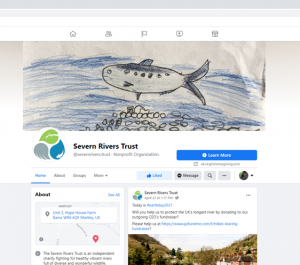
Severn Rivers Trust Facebook page, where I found out about the ‘Careers in River Conservation’ online event.
Finding a new opportunity
With the pandemic had been around for a while now, people had started to adapt to ‘the new normal’, and with this came a new wave of online webinars and lectures. Environmental organisations were embracing this newly forced platform of communication, with the capability to watch a new webinar every day if you really wanted to, all of them accessible via social media.
It is through one such virtual event I came across the Severn Rivers Trust. It was a full day event called ‘Careers in River Conservation’ with various staff giving their insights and advice about accessing a career in conservation. I must admit, it was perfect timing – just when I felt like I was about to give up hope entirely. I was impressed by their employees, their obvious passion and love for what they were doing and their commitment to working with communities, the public and volunteers, before and after the pandemic hit. So even though I knew very little about the Trust or the projects they were involved in, when it was mentioned at the end of the event that there were going to be volunteering roles available, I jumped at the chance.
Getting involved with Unlocking the Severn
There were two different types of volunteering available, both involved in the Unlocking the Severn project – ‘Camera trapping volunteers’ and ‘Online shad counting volunteers’ (fish migration monitoring volunteers), both being remote roles (working from your own computer) it didn’t matter that I was living far from the project (I was in Belfast in Northern Ireland while the Trust was based in West England/Wales!) so I applied for both, thinking my chances of getting something would be doubled. And, thank the Fish Gods, it worked! One excessively passionate cover letter later I had landed my second lot of pandemic volunteering!
Having never volunteered remotely before and having preceded the wave of tech-savvy pandemic graduates, I’m not going to lie, I was nervous. My previous remote tech experience, I’m ashamed to say, began and ended with emails – I had barely used Zoom before. Needless to say, I was a fish out of water (pun intended), but having just come from an extended period of time cut off from the professional world of conservation I wasn’t about to let this opportunity pass me by. Cue: diving in headfirst.
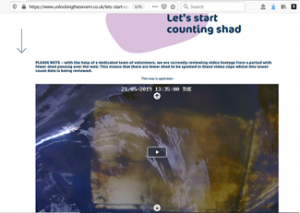
Online fish monitoring for Unlocking the Severn.
A hugely beneficial experience
Now, if anyone tries to tell you that volunteering is a waste of time, let me know and I’ll happily inform them of how wrong they are. Yes, every experience is what you make of it and that does apply hugely to volunteering, but when you volunteer with an organisation like the Severn Rivers Trust they are aware that you are giving up your valuable time for free and so they put an immense amount of energy and effort into helping you gain as much as you possibly can from working with them.
This included:
– My volunteering – which involved remotely counting the numbers of an incredibly endangered, fascinating, and undervalued fish called the twaite shad in order to help efforts to restore this historically and environmentally important fish to the river Severn
– A free certified training course
– Multiple in-depth talks provided by the Severn Rivers Trust knowledgeable staff
– The opportunity to help organise and contribute to online corporate events
– CV workshops
– The chance to meet, converse and make connections with professionals in the sector and other aspiring conservationists.
I was genuinely blown away by everything that was provided and made available and by the incredible people that made it all happen. All these new skills and experiences I could now add to my CV (a CV that was now recrafted into a professional document I was no longer unsure or ashamed to send to employers).
And then it happened… an interview! Finally!
As I’m writing this, I am waiting to hear back from them, but even if I don’t get this job I know that without my volunteering with Severn Rivers Trust and Unlocking the Severn I would have unlikely been given an interview at all and, if I have to carry on applying, I am now, more than ever, excited, confident and ready to showcase everything I know I have to offer.
Don’t lose heart
I know there are still so many of us out there who are looking for jobs in this sector, be that graduates, people who lost their jobs or people changing careers, feeling hopeless and lost the way I was. My advice to you is DO NOT STOP. Even with the way the world is currently, it IS possible. Immerse yourself in the virtual world that has now been made available. Watch webinars, get involved in citizen science projects (you can even do the same volunteering I was doing), sign up to every organisation newsletter and notification, contact individuals directly using LinkedIn, Twitter or email, accept every opportunity you can, be it voluntary or paid – every connection you can make and experience you can have has value!
One day, hopefully, this sector will be valued for its true importance and volunteering roles will be the exception not the rule, but until then we must use every spare moment we can, to get closer to our goals. Yes, it is going to be hard, but if we keep the passion going, put the work in and believe and trust in ourselves and our capabilities, we will get there!
We’ve got this!
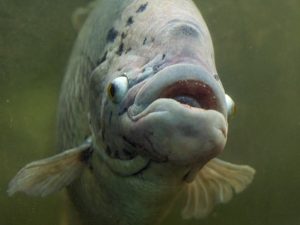
Funny smiling fish by Tambako of the Jaguar, courtesy of Creative Commons.

